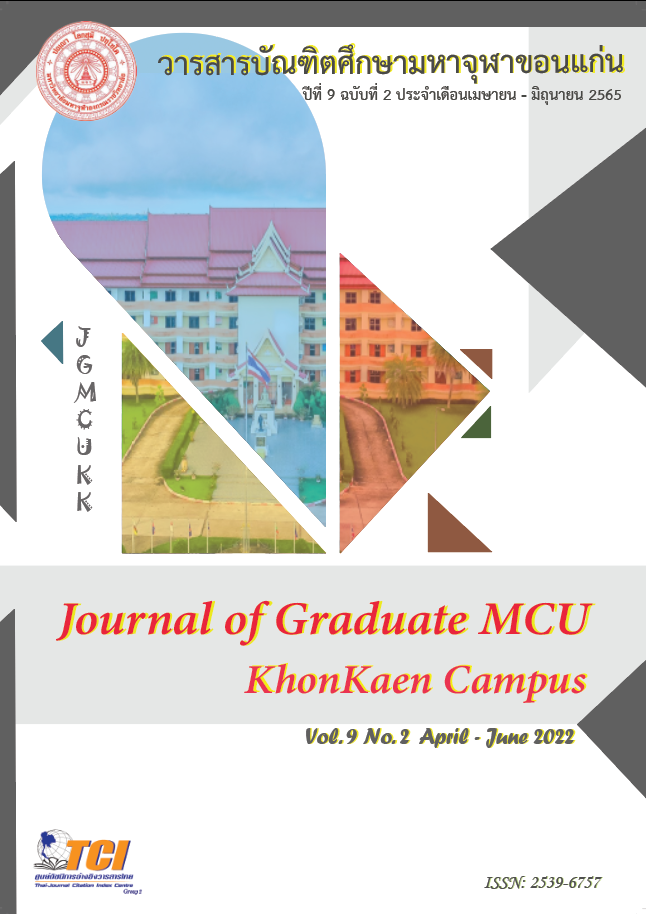An Analysis of the Neo-Platonism of Alexandria’s Hypatia An Analysis of the Neo-Platonism of Alexandria’s Hypatia
Main Article Content
Abstract
The objectives of this research are: 1) to study the concept of Platonism; 2) to study the Neo-Platonism of Hypatia of Alexandria; 3) to analyze the Neo-Platonism of Hypatia of Alexandria. It is documentary research. The data were collected from the relevant sources: primary, secondary, and related documents. The collected data were interpreted by the descriptive analysis based on the inductive method.
The research results were as follows: Platonism is the term that called referring to the believers and followers of Plato. Even though Plato's teachings were interpreted, commented on, or criticized, the base teachings were conserved. 1) Metaphysics: the Ideas or Forms which are universal, plentifully, perceived reasoning, objective truth, spaceless, and timeless. 2) Ethics: the four virtues, Wisdom, Courage, Temperance, and Justice. 3) Epistemology: the four levels, image, belief, reasoning, and perfect intelligence. Neo-Platonism was introduced in the nineteenth century to distinguish it from Platonism. Plotinus was known to be the founder. He criticized Plato and believed some ideas could have been better expressed. He made his interpretations and commentaries on the original works of Aristotle on the sensible world’ world' and Plato's spiritual ideas. 1) Metaphysics: three emanations from the One: Nous, World-Soul, and Material World. 2) Ethics: practicing the four virtues, wisdom, courage, temperance, and justice, ignoring the sensibility and focusing on learning philosophy and science, and uniting with the one. 3) Epistemology: through philosophical reflection, spirituality, meditation, and virtue to reach the divine intellect and contemplate the beauty of the noetic archetype.
Analyzing the Neo-Platonism of Hypatia
Hypatia was influential in philosophy, politics, and society and treated as a celebrity and beyond human beings. As a Neo-Platonist, Hypatia was considered as a Pagan. Her death was a martyr which later became the symbol for feminism and the Egyptian woman philosopher. Hypatia must teach Neo-Platonic philosophy to her students due to she was a Neo-Platonist. The main teaching of Neo-Platonism was based on Plotinus's teachings. 1) Metaphysics: her belief must be more closely to the former Neo-Platonists' reinterpretation based on the one and the emanations. 2) Ethics: to ignore the sensibility and focusing on learning philosophy and science, and to unite with the one. 3) Epistemology: Beside focusing on higher education, Hypatia taught oracles and rituals to her students and also taught secret rites and mysteries.
Article Details

This work is licensed under a Creative Commons Attribution-NonCommercial-NoDerivatives 4.0 International License.
References
Rebecca Buxton, Lisa Whiting, Philosophy Queen: (Unbound (2020)
Elbert Hubbard, Hypatia: (CreateSpace Independent Publishing Platform 2015)
Bruce J. MacLennan, Wisdom of Hypatia (Llewellyn Publications 2013)

